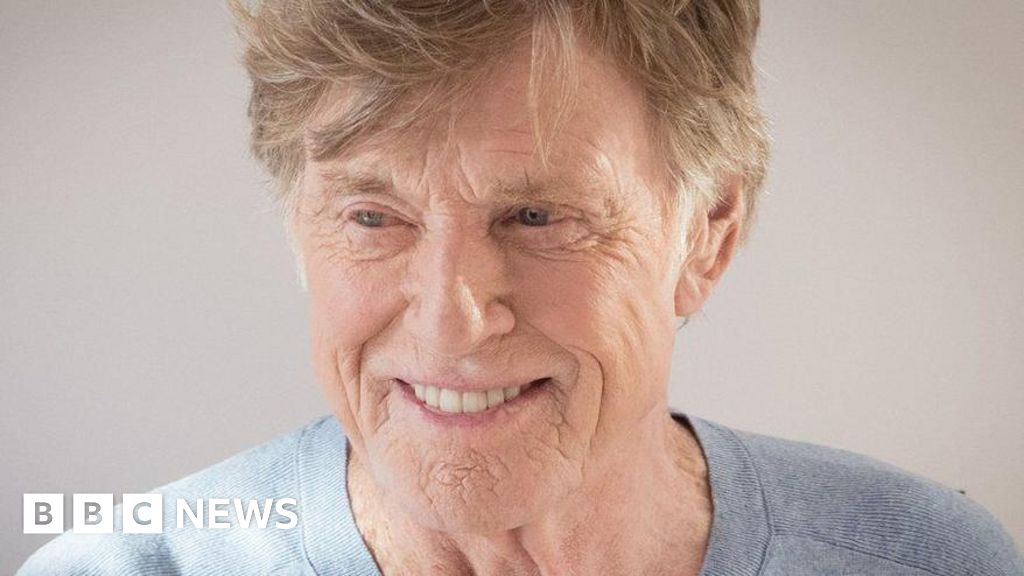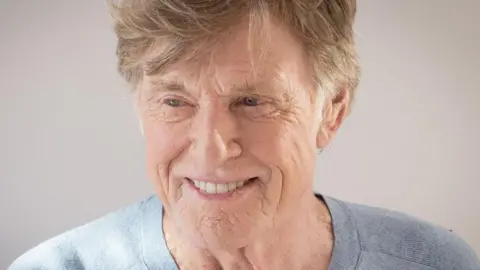 Getty Images
Getty ImagesRobert Redford, who has died at the age of 89, appeared in more than 50 Hollywood films, won an Oscar as a director, and became a champion of independent film-makers, founding the annual Sundance Film Festival to showcase their work.
Success meant he could pick and choose his projects, with many chiming with his politically liberal views. And he campaigned on environmental issues and for the rights of Native Americans.
His all-American good looks couldn’t be ignored: Redford was once described as “a chunk of Mount Rushmore levered into stonewashed denims”.
Another critic said he had “a fluid physical grace and an inner radiance that sometimes makes it seem as if he’s lit from within”.
But overall, Redford thought his beauty was more of a hindrance than a help to his career – and said karma had brought tragedy in his family life to punish him for his physical good fortune.
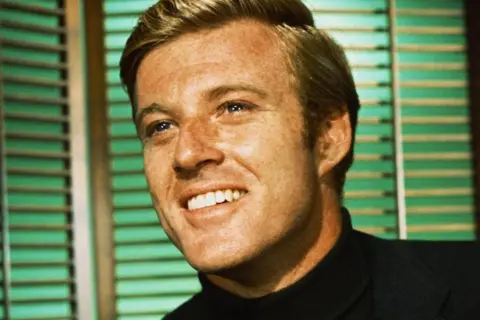 Getty Images
Getty ImagesCharles Robert Redford Jr was born in Santa Monica, California, on 18 August 1936 – the son of a milkman who later became an accountant with Standard Oil.
At school, he became part of a street gang and was arrested for “borrowing an automobile that had stolen jewellery in its trunk”.
He won a scholarship to the University of Colorado thanks to his prowess at baseball, but was thrown out after 18 months for drunkenness. At the same time, his mother died – aged just 40.
Stricken with grief, he drifted for a while, finding work in the Californian oilfields – before travelling to Paris and Florence, where he studied art.
His sojourn in Europe encouraged him to take a fresh approach to the United States: “I began to look at my country from another point of view,” he later said.
Returning home, he enrolled at the American Academy of Dramatic Art with ambitions to become a theatrical designer – but quickly switched to acting.
Like many actors in late 1950s New York, he picked up a number of small roles on stage and television, including parts in popular series such as The Untouchables, Perry Mason and Dr Kildare.
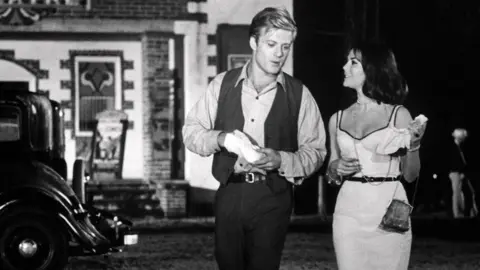 Getty Images
Getty ImagesHis big-screen debut came in 1960 with a minor role in Tall Story, where he found himself working alongside Jane Fonda.
It was not an auspicious start to his film career. The film flopped – with Time magazine opining that “nothing can save this picture”.
However, it did mark the beginning of a lifetime’s friendship with Fonda, who later admitted to falling in love with him each time they worked together.
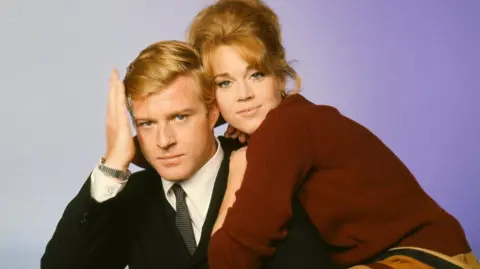 Getty Images
Getty Images“There was always a mystery because he didn’t reveal anything. He’s got an aura about him,” she said.
His first major stage success was as pompous lawyer Paul Bratter in Neil Simon’s romantic comedy Barefoot in the Park. It was a role he would reprise in the 1967 film version, opposite Fonda.
In 1965, he picked up a Golden Globe award for most promising newcomer for his role in the film Inside Daisy Clover with Natalie Wood.
But he was turned down for the part of Benjamin Braddock in The Graduate because director Mike Nichols felt he was too good-looking – which made Redford wary of being stereotyped by his appearance.
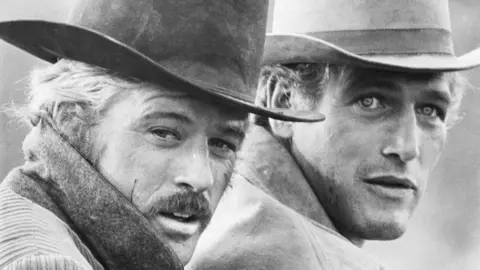 Getty Images
Getty ImagesGlobal fame came in 1969 with Butch Cassidy and the Sundance Kid.
The 33-year-old’s portrayal of the laidback Kid, in contrast to Paul Newman’s fast-talking Butch, proved to be one of Hollywood’s great partnerships.
Ironically, Redford nearly missed out on the part after one studio executive said: “He’s just another Hollywood blond. Throw a stick out of a window in Malibu, you’ll hit six like him.”
The studio did everything it could to avoid hiring Redford, until Newman – a huge established star – stepped in and insisted.
The two actors found they shared a love of theatre, and remained firm friends until Newman’s death in 2008.
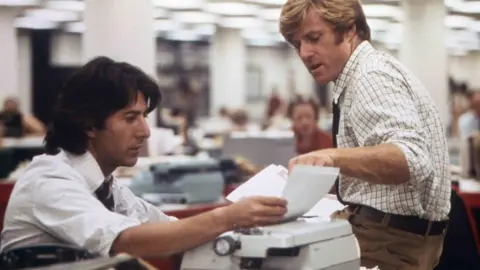 Getty Images
Getty Images“We’d play tricks on each other,” Redford said of his relationship with Newman. “The more sophisticated the joke the better.”
In 1973, their natural on-screen chemistry saw them team up again in The Sting.
Redford was Oscar-nominated for his role as Johnny Hooker, a small-time grifter who joins forces with Newman’s character to swindle a vicious crime boss.
The film, with its distinctive ragtime soundtrack, eventually won seven Academy Awards including best picture – although Redford was beaten to the best actor award by Jack Lemmon.
It was the only time Redford was ever nominated in the best actor category at the Oscars, although he would later win as a director – and received an honorary Oscar in 2002.
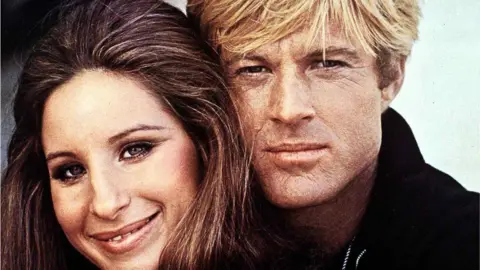 Getty Images
Getty ImagesRedford’s acting roles were prolific throughout the 70s, although there were mixed reviews for his turn as the enigmatic Gatsby in The Great Gatsby, and he was overshadowed by Barbra Streisand in The Way We Were.
But in 1974, Redford bought the film rights to All the President’s Men, an account of the Watergate scandal by Bob Woodward and Carl Bernstein – the two Washington Post reporters who uncovered it.
“The Washington Post were very nervous about us – that this was Hollywood and it could hurt them,” he recalled.
Released in 1976, with Redford playing Woodward alongside Dustin Hoffman as Bernstein, the film was a critical success, winning four Oscars – including best adapted screenplay and best supporting actor for Jason Robards.
Four years on, and Redford made his directorial debut with 1980’s Ordinary People, a study of the collapse of a middle-class family after the death of one of their sons. It won him his first and only Oscar.
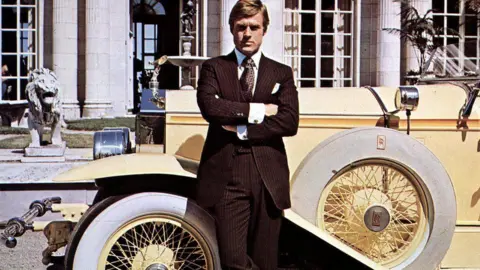 Getty Images
Getty ImagesWith recognition came wealth.
Redford used much of his earnings to buy a ski resort in Utah, his wife Lola’s home state, which he renamed Sundance after one of his most famous roles.
Around the same time, he founded the Sundance Institute to provide creative and financial support to independent film-makers. He went on to become chairman of the Utah/US Film Festival, later renamed the Sundance Film Festival.
Over time, the festival became a key event in the film calendar, showcasing the work of many directors who went on to become household names, including Quentin Tarantino and Steven Soderbergh.
In acting terms, there were hits and misses over the last two decades of the 20th Century. Prison drama Brubaker was a commercial and critical success, and there was a positive reception for popular dramas The Horse Whisperer and Indecent Proposal.
Out of Africa won a fistful of awards, but Havana was badly received and lost money at the box office.
Simultaneously, Redford continued to direct, including A River Runs Through It – which gave a career boost to a fledgling Brad Pitt – and The Legend of Bagger Vance, the last film to feature Jack Lemmon.
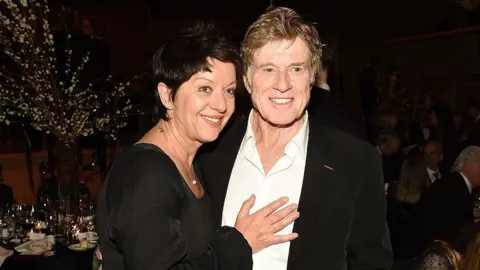 Getty Images
Getty ImagesThere was a muted reception for Lions for Lambs, which saw him reunited with Out of Africa’s Meryl Streep. There was high praise, however, for his role in the groundbreaking All is Lost – about an elderly yachtsman alone on his damaged boat in the Indian Ocean.
“There’s no dialogue, none at all. And I’m the only actor on screen in the whole movie,” Redford said. Many critics described his performance as the best of his career.
He also starred as S.H.I.E.L.D agent Alexander Pierce in Captain America: The Winter Soldier, a film far removed from his usual fare.
“I like the idea of stepping into new territory,” he told the LA Times, in 2013. “This is the kind of film I would love to have seen as a kid.”
Away from the studio, Redford became a prominent advocate for the environment. “Ours is a sick planet because of our behaviour on it,” he said in a 2014 interview.
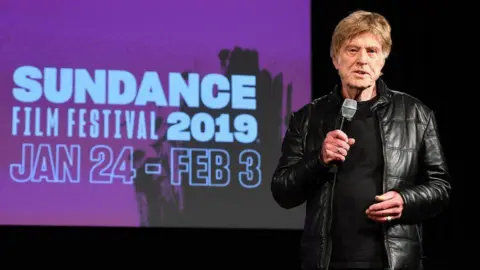 Getty Images
Getty ImagesRedford married Lola Van Wagenen in 1958, and the couple had four children.
Their youngest, Scott, died of sudden infant death syndrome aged two months.
In interviews, Redford said he believed that karma had punished him for possessing sexual magnetism and leading the hedonistic life of an actor.
“It felt like retribution,” he says. “I always had this thing that death was on my shoulder, 24/7. My dogs, as a kid. My mum. My firstborn.”
The couple divorced in 1985, and Redford had lengthy romances with Brazilian actress Sonia Braga and costume assistant Kathy O’Rear. He married Sibylle Szaggars – a German-born artist – in 2009.
In 2020, his son, David, died in his fifties from complications of bile duct cancer. He had been ill since birth and had had two liver transplants.
In 2019, Redford announced his retirement from acting soon after his cameo in Avengers: Endgame. But he found it hard to leave the limelight.
Approaching the age of 90, he reversed his decision a few years later – to appear in several episodes of Dark Winds, the story of two Navajo police officers who try to solve a double murder.
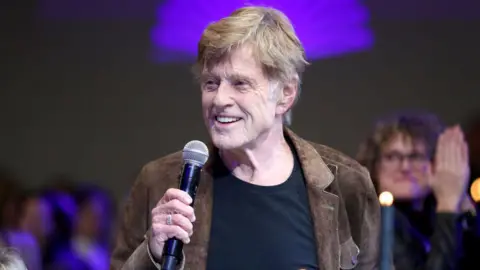 Getty Images
Getty ImagesRedford often shunned the Hollywood limelight, preferring to plough his own furrow.
Despite never winning an acting Oscar, the Academy paid tribute to his body of work with a lifetime achievement award in 2002.
Ultimately, Redford preferred characters that were a little offbeat – in keeping with his passion for independent cinema.
But he always insisted that his good looks hindered, rather than helped, him as an actor.
“The notion that you’re not so much of an actor, you’re just somebody that looks well. That was always hard for me,” he said.
“I always took pride in whatever role I was playing; I would be that character.”

